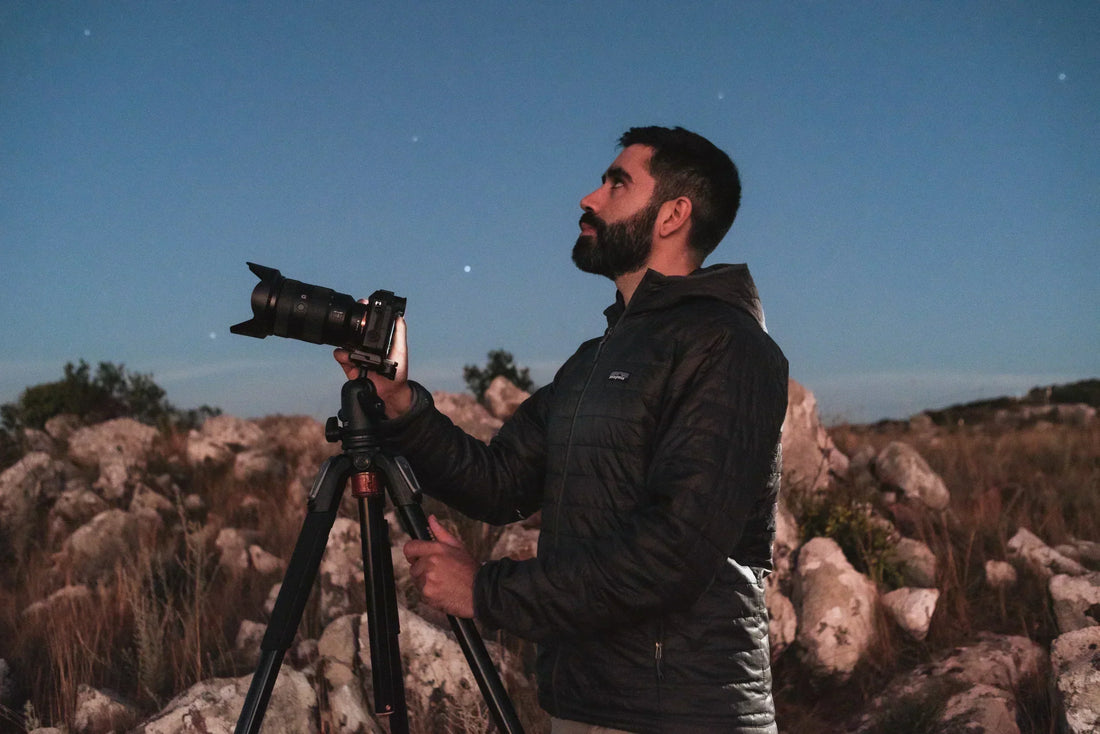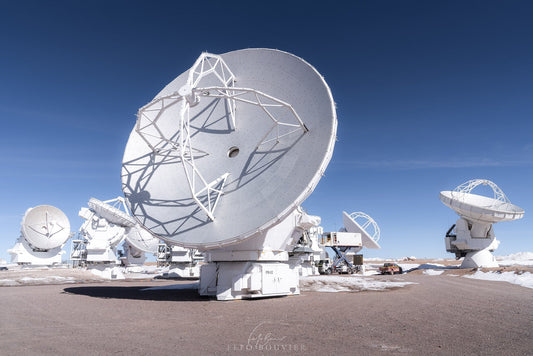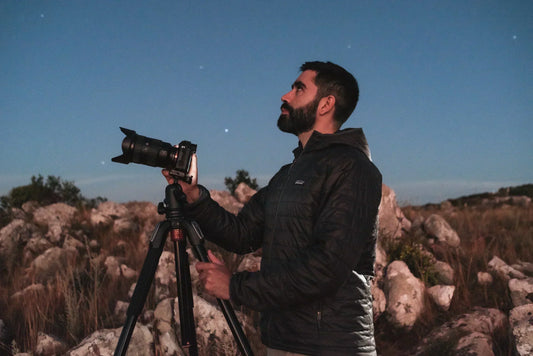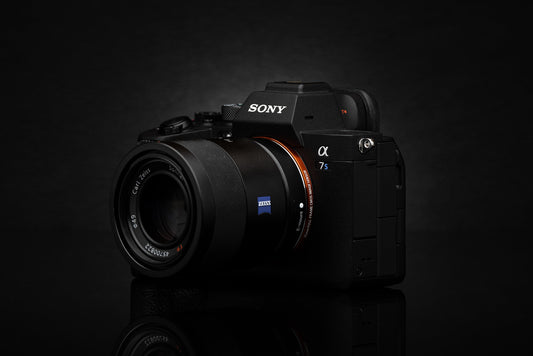Here’s a list of the astrophotography equipment I currently use for nightscapes, Milky Way photos, the Moon and more.
I try to keep it as small as possible. This is the set that works for me today and will probably continue to change over time. I hope it gives you inspiration and that, in combination with your own preferences, you can put together the best set for your creative needs.
To see the pictures I take with this gear, check out my Instagram feed.
Notes:
- As part of my alliance with Sony as an Alpha Friend, you can all get a 5% discount in the official Sony Uruguay shop using the coupon FEFOSONY. No limit to the number of uses.
- B&H and Amazon links are affiliate links. This means that by purchasing through those you pay the same amount and I get a small commission on the sale which goes toward supporting me and my work.
Camera | Lenses | Tripods & heads | Star tracker | Backpack | Filters | Accesories | Telescopes & binoculars
Cameras
Sony α7 III

I use this camera because it performs well in low light conditions, generating low noise images at high ISO, ideal for astrophotography. Its 24MP is sufficient for detailed images, both for web and print.
Buy from Sony Uruguay (5% discount using coupon FEFOSONY)
Sony α7S III

At only 12MP the low light video quality of this camera is insane and what I now use for night time filming. I also use it for timelapse.
Buy from Sony Uruguay (5% discount using coupon FEFOSONY)
Sony α7C

The α7 III and α7C share the same 24MP full-frame sensor and low light performance, but the A7C is more compact and lighter. I use it as a backstage camera and as another option for timelapse.
Buy from Sony Uruguay (5% discount using coupon FEFOSONY)
Lenses
Sony 16-35 mm f / 2.8 GM II

I use this wide-angle lens when capturing nightscapes with the Milky Way across the sky. Its 2.8 aperture is ideal for astro and produces sharp images. I use it a lot for seascapes as well.
Buy from Sony Uruguay (5% discount using coupon FEFOSONY)
Sony 24-70 mm f / 2.8 GM II

This is my favourite lens because it allows me to capture landscapes and objects in the sky in greater detail. Celestial objects like the Magellanic Clouds or Andromeda stand out against a landscape. It is ideal for portraits too.
Buy on Sony Uruguay (5% discount using coupon FEFOSONY)
Sony 100-400 mm GM

I recently bought this lens and haven’t had many chances to use it, but I feel I’m gonna love it. I bought it to shoot the Moon and planetary conjunctions (in combination with the 2x teleconverter listed below) and to capture abstract landscapes.
Buy on Sony Uruguay (5% discount using coupon FEFOSONY)
Sony 2x Teleconverter

It extends the focal length of telephoto lenses by 2.0x. That means that mounted on my 100-400mm I get a maximum focal length of 800mm. But there’s a cost to be paid for this 2x increase: the maximum native aperture of the lens is reduced by about 2-stops. Anyway, this is not an issue when photographing the Moon or a landscape, since I always use a tripod.
Buy on Sony Uruguay (5% discount using coupon FEFOSONY)
Tripods & heads
Manfrotto 055

My workhorse for almost every occasion—it’s almost ten years old now and still in good condition! It’s sturdy and somewhat heavy, ideal for keeping the camera steady in windy conditions. Not good for carrying it on long journeys. At full extension I can use the camera at my face level. I can also set the centre arm so that the camera is very close to the ground. I use it in combination with the Manfrotto 498RC2 Ballhead listed below.
Manfrotto 290 Xtra

This is my go-to for when I have to carry my gear for a long time to get to the shooting location or if I’m travelling. I can attach it to my Tenba backpack listed below to keep my hands free. While it’s light, it’s super stable. I use it in combination with the Manfrotto 494RC2 Ballhead listed below.
Manfrotto 498RC2

A sturdy piece that won’t let your camera accidentally disengage and fall to the ground. The quick release plate works like a charm. The ball head allows you to compose your shot quickly. The bubble level and graduated circle are great allies when shooting panoramas.
Links go to a new version
Manfrotto 494RC2

A smaller version of the Manfrotto 498RC2. I have two of these, one for the 290light tripod listed above and one for mounting the camera to the star tracker listed below. It uses the same quick release plate as the 498RC2 so I can switch tripods without the need to change the plate, time saver!
Links go to a new version
Star tracker
Vixen Optics Polarie
This is my best-kept astrophotographer secret. Where most astrophotographers go for the heavy and bulky Sky-Watcher star tracker, the Vixen Polarie is no bigger or heavier than a mirrorless camera body. And it supports the weight of all my lenses. So, I can achieve exposures on the order of minutes to capture a more detailed and spectacular sky—and the stars will still be dots not traces.
Buy from Tiendamia (25 USD discount using coupon IMPORTS-FEFO)
Links go to a new version
Backpack
Tenba Axis 24L

Over 8 years I’ve changed backpacks three times as my equipment changes and I always choose Tenba. Their backpacks are super strong, made from the highest quality materials and, most importantly, very lightweight. When I carry everything listed on this page in a backpack, the latter is crucial.
Buy from Tiendamia (25 USD discount using coupon IMPORTS-FEFO)
Link goes to the new version
Filters
Hoya 82mm NXT Plus Circular Polarizer Filter
This filter allows to remove unwanted reflections from non-metallic surfaces such as water or vegetation. As a result, colours look more vivid in landscape photography. This filter applies a waterproof top coat so water beads-up quickly and makes the filter a lot easier to clean.
Hoya 82mm Neutral Density x8 Filter

This filter reduces the amount of light reaching the camera’s sensor, allowing you to slow down the shutter speed by 3-stops to record the movement of subjects such as waterfalls, waves and fog. The colours remain neutral with no apparent color cast which is really good.
Accessories
Petzl Actik Core Headlamp

My favourite headlamp. It has a red light function for astronomy/astrophotography related activities (the red light helps prevent you from being dazzled and losing night vision) and a low power white light.
Buy from Tiendamia (10% de descuento con cupón FEFO-MIA)
Vello ShutterBoss II Intervalometer

This device can be used as a remote shutter, to set a specific exposure time longer than 30 sec (bulb mode) and as an intervalometer when shooting a timelapse. It’s amazing how long the battery lasts. The links lead to the Sony version, but there are also versions for Canon, Nikon and Fuji, look for them.
Buy from Tiendamia (10% discount using coupon FEFO-MIA)
Haida anti-fog belt
This accessory is a must for night photography, especially when shooting timelapse. An anti-condensation belt or lens warmer is a padded strap that wraps around the lens, connects to a USB power bank and keeps the lens slightly warm, preventing condensation from dew.
Buy from Tiendamia (10% discount using coupon FEFO-MIA)
Tether Tools StrapMoore

This strap has two velcro straps that attach to the tripod and a larger one to hold anything you need. I use it for a USB power bank to power the star tracker and lens warmer. Sometimes I also use it to hold the intervalometer.
Buy from Tiendamia (10% discount using coupon FEFO-MIA)
Peak Design Anchor Links

When taking long exposures at night, any possibility of camera shake must be reduced. And the camera strap is an element that can easily move in the wind. But we all know how cumbersome it is to remove and reattach the strap on most cameras. This simple but practical accessory will save you that hassle.
Buy from Tiendamia (10% discount using coupon FEFO-MIA)
Ruggard dry cabinet for electronics (50L)

This is how I keep my photographic equipment free of humidity (and dust) living in one of the most humid cities in Uruguay by the Río de la Plata. This small cabinet keeps the humidity under constant control and prevents the equipment—especially the lenses—from developing mould due to excess humidity.
Buy from Tiendamia (10% discount using coupon FEFO-MIA)
Telescopes & binoculars
🔗 For my recommendations on telescopes and binoculars, click here for my easy guide on what & how to buy.
Got questions? Leave them in the comments and I’ll get back to you as soon as possible. If you get any of this equipment, let us know how it works for you.





